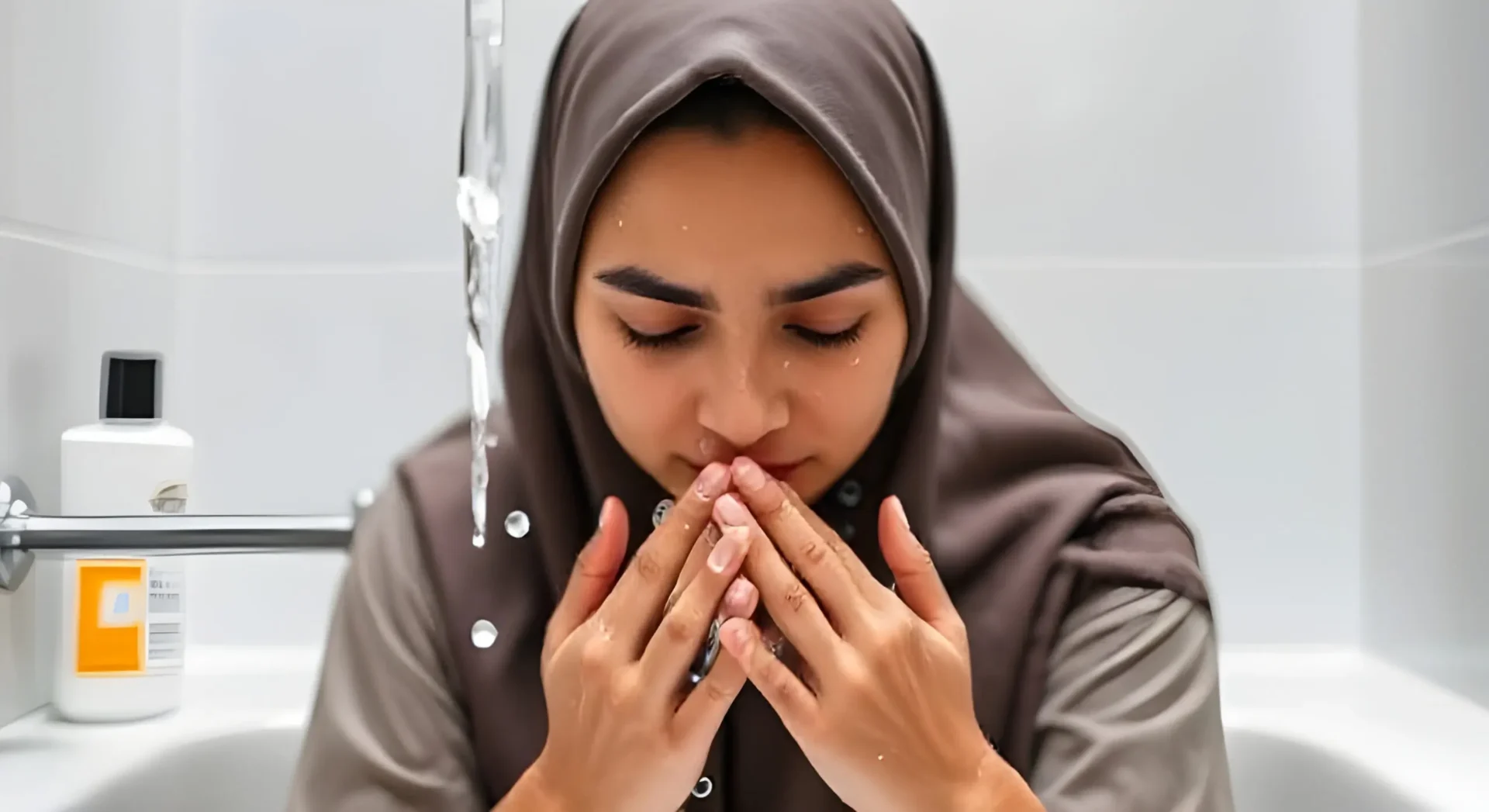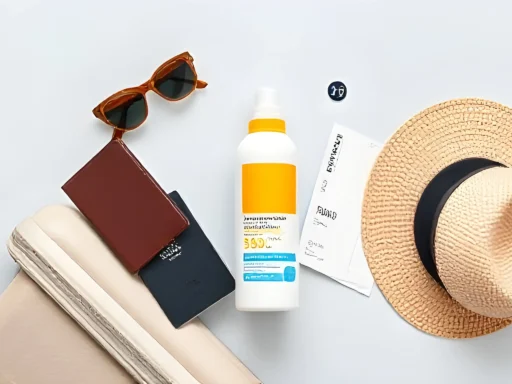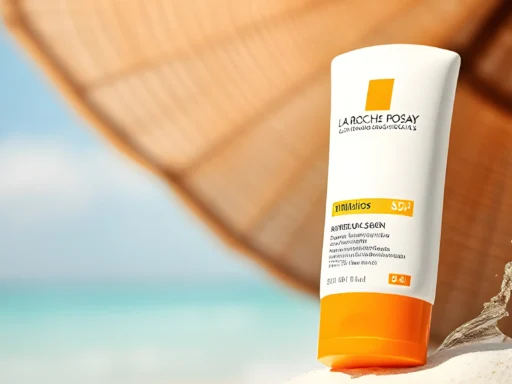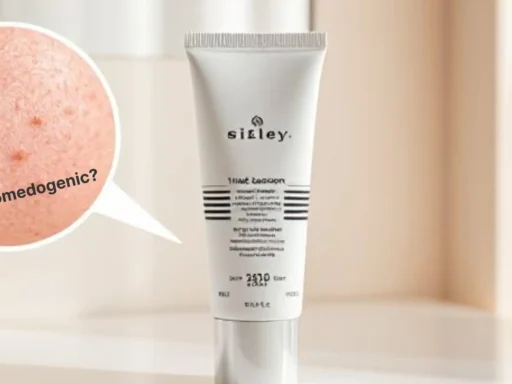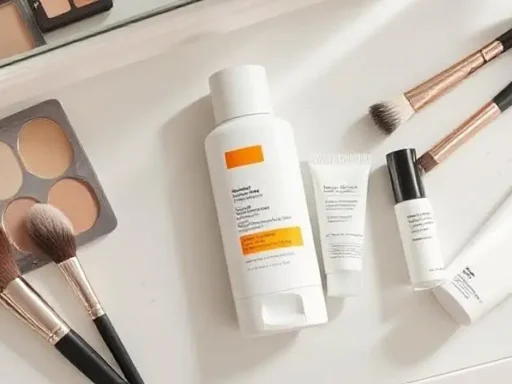Before prayer and other religious rituals Muslims must perform the essential purification ritual called Wudu which means ablution. Through wudu a Muslim maintains physical and spiritual cleanliness which represents a fundamental daily requirement in their lifestyle. Modern life has brought sunscreen and skincare products into use but Muslims frequently wonder, how these items affect their ability to perform Wudu correctly.
The application of sunscreen creates an obstacle through which water cannot penetrate the skin. Can You Do Wudu with Sunscreen On The question exists about whether you should take off sunscreen before starting your wudu practice or not. The application of sunscreen becomes possible at any point in your wudu process.
This guide focuses on resolving the issues that exist between proper skincare routines and Islamic worship practices.
Understanding Wudu and Its Requirements
What Is Wudu and Why Is It Important?
A person who wants to perform wudu must wash selected parts of their body including hands arms face and feet under clean water. It is mentioned in the Quran in Surah Al-Ma’idah (5:6):
“O you who have believed, when you rise to [perform] prayer, wash your faces and your forearms to the elbows and wipe over your heads and wash your feet to the ankles.”
Through this genuine religious act the body gets prepared while the soul purification results in prayer readiness.
What Makes Wudu Valid?
The skin area needs contact with water for wudu to validate performed cleansing. When heavy lotions or makeup act as barriers the validity of wudu becomes questionable. Sunscreen—an important skincare product—falls into this category, particularly for those in hot climates, outdoor workers, and Hajj or Umrah pilgrims.
Can You Do Wudu with Sunscreen On?
How Different Sunscreens Interact with Water
Sunscreens come in various formulations, including:
1
Oil-based sunscreen:
These can leave a thick, greasy layer on the skin.
2
Water-resistant sunscreen:
Designed to stay on the skin despite moisture, potentially forming a water barrier.
3
Gel-based sunscreen:
Typically lighter and easier for water to pass through.
Does Sunscreen Prevent Water Reaching the Skin?
The short answer is—it depends. Physical sunscreen barriers that block water from reaching the skin could possibly break wudu validity. Many sunscreen gels together with their lightweight alternatives do not interfere with wudu. Constantly inspect your sunscreen for its degree of thickening together with its formulation characteristics.
Is My Wudu Valid with Sunscreen On?
Your wudu stays valid if sunscreen allows water to penetrate through its barrier to your skin. Wiping off your sunscreen before performing wudu remains the most recommended practice.
Is Wudu Valid with Waterproof Sunscreen?
Concerns Around Waterproof Sunscreen
The main purpose of waterproof sunscreen is to stand up against water flow which can function as a protective layer. Outdoor activities look excellent under sunscreen protection but restriction practices may issue hurdles for wudu performance.
Scholarly Opinions on Removing Sunscreen
Within the Islamic scholarly community there exists a disagreement about complete removal of waterproof substances. Different scholars have different recommendations which either include wet cleaning methods for skin access or suggest non-waterproof sunscreen products during times when wudu must be performed frequently.
Can I Perform Wudu Over Sunscreen?
The availability of water to your skin confirms that you can do wudu directly on top of sunscreen application. To reduce the risk of doubt remove your sunscreen prior to performing wudu for secure practice.
Should You Remove Sunscreen Before Wudu?
Situations Where Removal Is Advised
Using heavy or waterproof sunscreen requires removal before wudu to ensure proper fulfillment of requirements. To swiftly remove sunscreen from wudu areas you should use a mild cleanser or wet wipes.
Wudu-Friendly Sunscreens
People can benefit from using wudu-compatible sunscreen alternatives. Special sunscreen formulations exist which enable water passage thus maintaining the validity of your wudu.
Can I Apply Sunscreen After Wudu?
Is It Permissible?
The practice of putting sunscreen after wudu is completely acceptable in Islamic tradition. The wudu remains valid after completion so you can safely add sunscreen.
When Should You Apply Sunscreen?
Scheduling your daily activities according to your religious prayer times provides effective results. The sacred practice of wudu can remain protected along with skin health when you apply sunscreen at the appropriate time after your wudu completion.
Conclusion
Finding the balance between skincare and worship is simpler than it seems:
1
Choose sunscreens designed for wudu so you have faster turnaround times.
2
Create your skincare sequence according to your prayer schedule.
3
You should speak with an authority if you do not understand particular products or formulations.
Looking after your skin should not disrupt your spiritual rituals. If you’ve ever wondered, can you do Wudu with sunscreen on, the answer depends on the type of product you use. Being Muslim and worshipping or working outdoors while protecting your skin becomes possible when you have the right wudu-compliant skincare information with you.
Frequently Asked Questions (FAQs)
Yes, as long as water can reach the skin underneath. If you’re unsure, opt for lightweight, non-waterproof sunscreens or remove the sunscreen before wudu.
If the moisturizer does not form a thick barrier preventing water from reaching the skin, your wudu is valid.
Sunscreen is permissible, and many scholars encourage its use to protect yourself from harmful UV rays. Choose halal-certified or gentle formulations if you’re concerned about ingredients.
If the makeup is waterproof or forms a thick layer, it should be removed in areas required for wudu. Opt for wudu-friendly, light makeup for convenience.
Editor’s Recommendation
Can You Put Sunscreen on a New Tattoo? A Complete Guide
How Long to Wait to Swim After Putting on Sunscreen?


